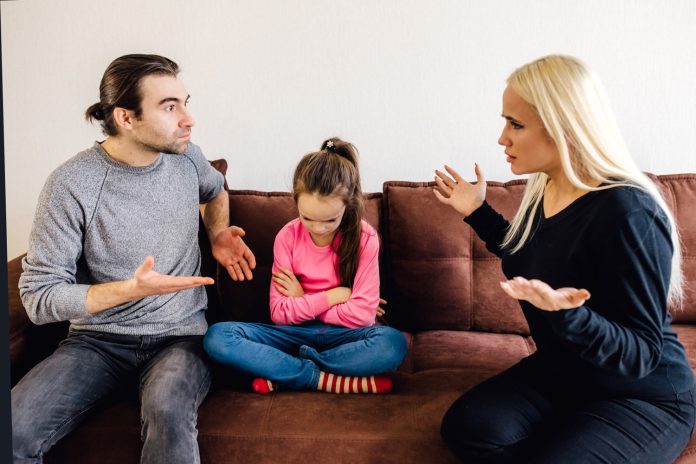Anxiety affects millions of individuals worldwide. While it is natural to experience occasional worry or fear, persistent and overwhelming anxiety can significantly impact daily life. Identifying behavioral signs and symptoms of anxiety is crucial for early recognition and seeking appropriate support. That is when Psychiatry doctors of Valley Pediatrics step in. They indicate the presence of anxiety and empower individuals and their loved ones to navigate this condition more effectively.
Excessive Worry and Fear
One of the hallmark signs of anxiety is excessive and uncontrollable worry or fear. Individuals with anxiety often find themselves trapped in a cycle of anticipating negative outcomes, even when the threat is minimal or nonexistent. These worries can extend to various areas of life, such as health, work, relationships, or everyday responsibilities.
Restlessness and Irritability
Anxiety can manifest as restlessness and irritability, causing individuals to feel on edge or unable to relax. They may have trouble concentrating or struggle to sit still for extended periods. Minor disturbances that might not usually bother others can provoke intense frustration or anger, leading to strained relationships or impaired social functioning.
Sleep Disturbances
Anxiety can disrupt sleep patterns, leading to difficulties falling asleep, staying asleep, or experiencing restful sleep. Individuals may find themselves lying awake at night, their minds racing with worries and concerns. This chronic lack of sleep can further exacerbate anxiety symptoms and negatively impact overall well-being and cognitive functioning.
Avoidance Behaviors – Behavioral Signs
People with anxiety often engage in avoidance behaviors, seeking to escape situations or stimuli they perceive as threatening or anxiety-provoking. It involves avoiding social gatherings, public speaking engagements, or confronting feared objects or situations. While avoidance may offer temporary relief, it reinforces anxiety in the long run by preventing individuals from learning that their fears are often unfounded.
Panic Attacks
Panic attacks, intense episodes of fear accompanied by physical symptoms, are common in individuals with anxiety disorders. Symptoms may include.
- Rapid heartbeat
- Shortness of breath
- Chest pain, dizziness
- Trembling
- A sense of impending doom
Panic attacks can be extremely distressing and may lead individuals to fear having future attacks, causing them to avoid certain situations or develop panic disorder.
Physical Symptoms
Anxiety can manifest in physical symptoms, including headaches, stomachaches, muscle tension, and fatigue. Individuals may experience frequent aches and pains without any apparent medical cause. These physical symptoms are often a result of the body’s heightened stress response, triggered by anxiety. It is essential to recognize that anxiety can have both psychological and physical manifestations.
Obsessive-Compulsive Behaviors
Some individuals with anxiety may develop obsessive-compulsive behaviors to cope with their anxiety. These behaviors are characterized by repetitive actions or thoughts reducing distress or preventing harm. Common examples include excessive handwashing, checking behaviors, or rigid adherence to specific routines or rituals. Moreover, these behaviors may provide temporary relief from anxiety, they can become time-consuming, interfere with daily functioning, and exacerbate feelings of anxiety and distress when disrupted.
Tailored Treatment Plans
Psychiatrists can develop personalized treatment plans, including therapy, medication, and lifestyle modifications. Cognitive-behavioral therapy (CBT) and exposure therapy are commonly used therapeutic approaches for social anxiety.
Support and Guidance
Psychiatry services offer a supportive and non-judgmental environment where individuals can openly discuss their concerns and challenges. This professional guidance can empower individuals to overcome their fears and develop effective coping strategies.
Social anxiety can significantly impact an individual’s quality of life, hindering personal and professional growth. Recognizing the signs of social anxiety disorder is crucial for early intervention and seeking appropriate help. Psychiatry services provide a range of effective treatment options tailored to address social anxiety symptoms. Remember, individuals with social anxiety can learn to manage their fears and thrive in social situations with the proper support.
Social isolation can also lead to a lack of support networks, hindering recovery and coping strategies. Individuals with anxiety must understand the importance of seeking social support, connecting with understanding friends and family. Moreover, consider therapy or support groups where they can interact with others facing similar challenges.
Social Isolation
Anxiety can lead individuals to withdraw from social interactions due to fear of judgment, embarrassment, or the overwhelming nature of social situations. They may find it difficult to initiate or maintain relationships, contributing to feelings of loneliness and further exacerbating anxiety symptoms.
Social isolation can also lead to a lack of support networks, hindering recovery and coping strategies. Individuals with anxiety must understand the importance of seeking social support, connecting with understanding friends and family. Moreover, consider therapy or support groups where they can interact with others facing similar challenges.
Recognizing these signs in oneself or loved ones indicate early intervention and appropriate support, enabling individuals to develop effective coping strategies, seek professional help from Valley Pediatrics and work towards improved mental health. By shedding light on these behavioral signs, we hope to encourage a more compassionate and understanding approach to supporting those with anxiety and fostering a healthier society. If you seek attentive and accessible care for your child, then our pediatrics clinic in Guntersville is the place for you!














